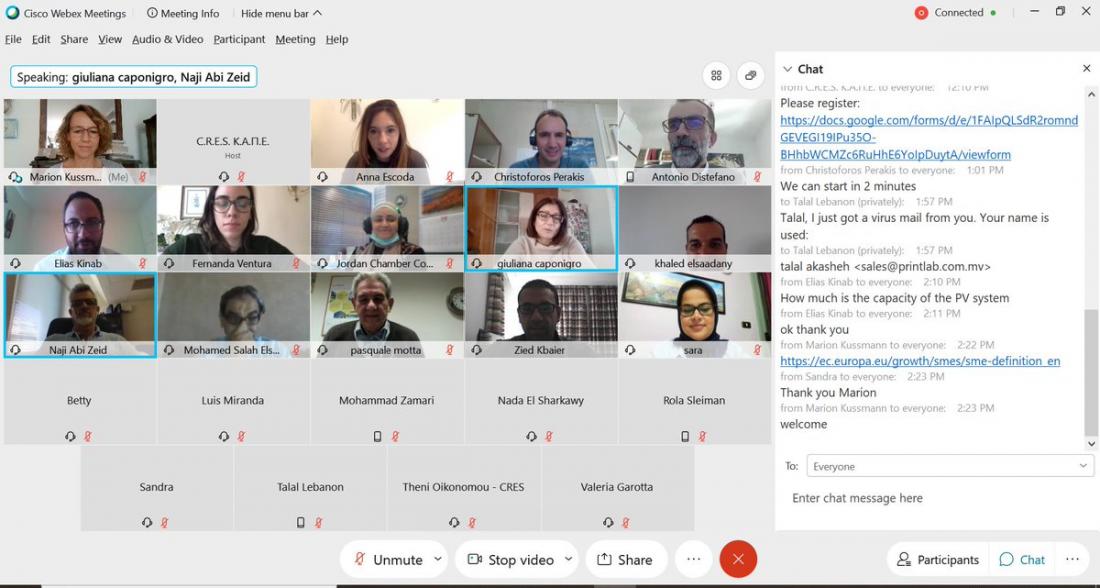Resource and energy efficiency: MAIA-TAQA partners discuss the implementation of pilot projects in Egypt, Lebanon and Jordan

Due to the COVID-19 restrictions that have been introduced by the national governments, the 3rd meeting of the MAIA-TAQA project was organized as a tele-meeting on October 19, 2020.
The objectives of the meeting were to monitor progress of the Work Packages (WP), discuss and approve project deliverables accomplished, as well as monitor spending and management performance; furthermore, to plan project activities for the 3rd semester.
The project officers from the Joint Technical Secretariat of the ENI CBC Med Programme, Mr. Khaled Elsaadany and Mr. Zeid Kbaier, both attended the meeting and provided advice to ensure the sound technical and financial management of MAIA-TAQA.
During the 3rd project meeting the followings were presented:
- CRES, Center for Renewable Energy Sources and Saving, represented by the project coordinator, Mr. Christoforos Perakis, presented issues related to project progress and the financial management (deliverables, budget absorption, financing issues, the 1stinterim report of the project).
- IRI, Industrial Research Institute, represented by Ms. Joelle Chebli, the project Communication manager, presented the progress achieved so far, critical issues and next steps for Communication. The communication channels used will act as a good practice example in the MED countries on dealing with Renewable Energy services, stimulating innovative processes, identifying current barriers and promoting innovative Renewable Energy Services.
- ASCAME, Association of the Mediterranean Chambers Of Commerce and Industry, represented by Mr. Luis Miranda Molas, presented the key issues concerning the implementation of the ‘WP3- Resources Efficiency market assessment’. He presented the methodology in order the market dimensions of the new Resource Efficiency (RE) services to be described and the needed capacities in terms of capacity, technology, regulation, risk assessment to be defined in the three pilot areas (Egypt, Lebanon, Jordan).
- CEEBA, the Confederation of Egyptian European Business Associations, presented the action plan for the implementation of the ‘WP4 - Capacity building for sustainable services’ activities. The WP4 objective is to tackle one of the first and main barriers to develop innovative services: the lack of capacity or competencies. So, CEEBA presented a training programme to overcome the capacity barriers and its main target is engineers.
Finally, the progress of the 3 pilot projects was presented:
- JOCC, Jordan Chamber of Commerce, represented by Ms Hala Khasawneh, gave an overview of the next steps for the implementation of the two pilot projects in Jordan (solar cooling in Aqaba and Building-integrated photovoltaics in Amman).
- IRI, Industrial Research Institute, initially presented the scope of the pilot project in Lebanon, which is:
a) construction of a wastewater treatment plant for IRI building and
b) To use treated wastewater for irrigation purposes.
- CEEBA represented by Mr. Sobki gave an overview of the pilot project to be implemented in Alexandria, which will be a PV based power generation system for the El-America wholesale market.
Through the creation of the pilot projects, MAIA-TAQA will raise awareness among the SMEs and the policy makers of innovation practices and policy instruments in the area of RE services.







